Do you want to talk about waste, fraud, and abuse? No better place than the waste, fraud, abuse, and corruption that accompanied the extremist takeover of the Placentia Yorba Linda Unified School District (PYLUSD) board in 2022, as illustrated in three recent legal filings. The three plaintiffs are Richard McAlindin, Thomas Craik, and Beth Scott. Their filings and board minutes are the almost exclusive sources used. It is important to note that these complaints remain allegations and have not yet been presented or substantiated in a court of law.
I am grateful to the administrators of the Orange Juice Blog for posting this. One contribution of the blog is its function as a stable repository of information at a time when local journalism may not meet all our needs, and information shared on social media tends to be scattered. Therefore, I invite all readers to contribute comments, constructive criticisms, clarifications, further information, and questions to the blog post.
The PYLUSD Enters the “Find” Out Phase
Three recent civil lawsuits brought against the PYLUSD have highlighted concerns over recent problems within the district. Community members have previously documented financial losses associated with certain educational and sports initiatives, including the Orange County School of Computer Science (OCSCS) and the Universal Sports Institute (USI), as well as the departure of several accomplished leaders to other districts. Additionally, while there have been longstanding rumors about the treatment of employees under former Superintendent Alex Cherniss and his cohorts, concrete evidence has now been provided to substantiate the rumors in these three filings.
This litigation is expected to be costly but necessary to address issues that developed in the district during the tenure of former superintendent Cherniss and board members Leandra Blades, Todd Frazier, and Shawn Youngblood. The district wisely settled the case brought by Richard McAlindin, former Assistant Superintendent of Executive Services. The out-of-court settlement cost the district $300,000. The cases of former crisis counselor Thomas Craik and former Counselor on Special Assignment (COSA) Beth Scott will possibly go to trial. The costs of this litigation will be large, as will the likely settlements. The district and its students will surely suffer as a result.
Elections have consequences. Placentia and Yorba Linda, welcome to the world of FAFO!
How We Got Here
In 2020, the Orange County Republican Party, with support from various charter and home school interests, secured three seats on the previously non-partisan five-member PYLUSD school board. Leandra Blades and Shawn Youngblood were political extremists, while Marilyn Anderson was a traditional conservative. Unlike Blades and Youngblood, Anderson has been an active member of the community whose family members have attended PYLUSD schools for three generations. In contrast to Blades and Youngblood, Anderson has demonstrated a thorough understanding of the district, its programs, leadership, and educators. Anderson’s expertise has been bolstered by her years of service on PTAs and PTSAs. Unlike Blades and Youngblood, Anderson focused on enhancing public education rather than opposing it. Unlike Blades and Youngblood, she welcomed differing perspectives. In the two years following the 2020 election, Anderson’s approach to her duties clearly diverged from those of Blades and Youngblood.
The November 2022 election of Todd Frazier secured the prominence of the extremists on the board. One of the first things the newly consolidated extremist majority did was circumvent the customary rotation of the board presidency. When the new board convened in December, they made Shawn Youngblood president even though earlier practice would have had Anderson serve in that post.
The role of board president carries significant responsibility, particularly within a board as divided as that of the PYLUSD. The president can set the agenda, schedule, and discussion procedures for meetings within certain limits. The extremist majority broke protocol again the next year by electing extremist Trustee Blades (below right) as president instead of Anderson. The extremist takeover of PYLUSD over the past two years has led to waste, fraud, and abuse that will take many years for the district to remedy.
This takeover also provides the context for the three lawsuits discussed below. The time frame of these suits coincides with the departure of numerous highly qualified and experienced administrators from the district. Extremists have supported ineffective programs labelled as “innovations,” resulting in ongoing financial waste. The district’s focus on culture wars has resulted in actions that likely conflict with state laws concerning curriculum, students’ rights, teachers’ rights, parents’ rights, and the rights of the LGBTQ community. The extremists’ mismanagement has already led to as yet undocumented legal fees for the district.
It is hard to avoid the conclusion that this waste has been intentional. The goal of the local extremists is the same as that of the national ones: to destroy public education in order to privatize it to the benefit of charter and parochial schools. Endless litigation is a main tactic used to cause destruction, as it wastes public funds while avoiding accountability for those most responsible for the waste. Accountability is why these three lawsuits are so important.
Lawsuits are Not for the Fainthearted!
No one enters a civil suit lightly, especially one against a school district. For those without the money to fund a retinue of attorneys, lawsuits consume time and enormous amounts of emotional energy. The process of discovery can bring into the public sphere your worst professional moments as well as elements of your personal life. The trial process may present unforeseen developments or unanticipated judicial rulings, which can potentially affect the strength of an otherwise robust case.
Additionally, jury deliberations can go in any number of directions over which a plaintiff with a strong case has no control. Jurists, for instance, may be guided by the consideration that a ruling in favor of a litigant with a claim against a school district could potentially divert resources essential for the education of students within that district. Although, in principle, a jury ought to view a school in the same manner as any other employer, public sentiment towards educational institutions often distinguishes litigation against schools from lawsuits involving large multinational corporations. In short, jurists do not want the kids to suffer.
Finally, litigation is a public matter making it virtually impossible for a plaintiff to find employment while the process plays out. School districts are understandably reticent to hire someone who has sued or is in the process of suing their previous employer. As a result of such factors, many former PYLUSD employees with strong cases against the district ultimately decided not to pursue them. It is not by chance that two of the three plaintiffs in these cases are very close to retirement. Indeed, one appears to have just done so!
This is why Richard McAlindin, Thomas Craik, and Beth Scott should be lauded. Their lawsuits have provided information to the public about events that occurred during the superintendency of Alex Cherniss (right) that would otherwise have remained obscured. These lawsuits help us understand why so many of our best educators have chosen to leave the district. Their three suits indicate consistent patterns of deliberately defamatory conduct directed toward individuals who opposed Cherniss’ schemes. The lawsuits also name individuals who are alleged to have collaborated with Cherniss in actions that may not have aligned with the best interests of the district, its employees, students, and parents.
While the district made the right choice in settling the McAlindin case out of court, it may be in the best interests of the public for at least one if not both remaining cases to proceed to trial. The evidence presented in these two cases could provide grounds for the district to initiate countersuits against currently unidentified defendants, who may subsequently be required to compensate the district for the damages they have caused. During discovery and trial testimony, moreover, conduct may be uncovered that elevates these civil claims to criminal ones.
Commonalities between the 3 Cases
Before analyzing the specifics of each of the three cases, it is important to note several commonalities among them that help to contextualize the issues. This will clarify the strengths and weaknesses of the cases and identify possible outcomes for the litigants and the district.
A Common Attorney
Each of the three plaintiffs has engaged the legal services of Linda Louise Scott, a circumstance that presents both potential benefits and drawbacks. Attorney Scott specializes in Employment and Labor law as well as Workers Compensation, Estate Planning, and Family Law. As all three cases principally concern allegations of contract violations and breaches of the duty of good faith and fair dealing, it appears that Attorney Scott is handling matters directly related to a couple of her areas of expertise:
Labor Law and Workers Compensation.
Attorney Scott’s office has established itself as a central repository of information regarding events that occurred during Cherniss’ tenure as superintendent, and this body of evidence is expected to expand as the cases progress. The alleged violations, along with the individuals and behavioral patterns referenced in all three lawsuits, display consistency and thereby mutually reinforce one another. If any of these cases make it to trial, Attorney Scott should have plenty of evidence to present in support of her client.
As witnesses testify under oath, new evidence and possible legal actions against unspecified defendants may arise. For instance, former Superintendent Cherniss is not currently named as a defendant in any of the three suits. That could change.
A drawback in having all three cases represented by the same attorney is the possibility that the interests of one client may conflict with the interests of the others. That possibility, however, is purely speculative at this point.
Challenging a well-resourced institution is a David v. Goliath situation for both the plaintiffs and their attorney in these three cases. Wealthy parties obviously can overwhelm small law firms with numerous motions. The risk far exceeds the potential for rewards for the plaintiffs and their attorney in these cases. Fortunately, Attorney Scott has already claimed one success in the McAlindin case. The stakes in the remaining two cases, however, appear to be much higher for both the plaintiffs and the defendants. One of the primary concerns is that, in a time when legal outcomes can be significantly influenced by financial resources, even a minor error by Attorney Scott in either remaining case has the potential to affect the viability of the other.
A Common Pool of Potential Defendants
The presence of numerous unnamed defendants (“DOES”) renders the potential for proceeding to trial in either or both remaining cases a matter of public interest. These “DOES” may be administrators whose salaries and benefits are paid by the taxpayers.
The three cases have clarified the reasons for placing seven managers on paid administrative leave on December 19, 2024, which resulted in significant expense for the district. The ongoing process of discovery and trial could impact the legal status of any or all these individuals. The seven who were placed on paid administrative leave were:
- Former Superintendent Alex Cherniss;
- Deputy Superintendent, Isaaic Gates, who remains on administrative leave;
- Assistant Superintendent of Educational Services, Olivia Yaung;
- Executive Director of College and Career Readiness, Dr. William Gray;
- Director of Human Resources, Nancy Blade;
- Director of Business Services (now defunct), Cristina Michel;
- and the Director of Student Services and current Principal of El Camino Real High School, Gina Aguilar.
Allegations in the Beth Scott lawsuit are especially relevant to at least six of these seven.
A Common Pool of Potential Witnesses
A lot of the drama might come from the testimony of the classified and certificated staff at the district office. These individuals have experience with the daily operations of the district. They are familiar with the procedures as well as the people working in district offices. Their accounts have not been widely shared due to confidentiality requirements.
A Common Set of Complaints
All three plaintiffs are asserting breach of contract, breach of good faith and fairness, and intentional infliction of emotional distress. Scott’s case also includes an allegation of retaliation related to whistleblower activity. There is strong evidence of contractual violation in all three cases. Payouts in cases of contractual violation can be quite easily determined and are usually settled out of court, as occurred in McAlindin’s case.
Emotional distress claims are hard to prove but can result in large payouts. Claims related to emotional distress are particularly noteworthy. The distress reported is attributable to the harassment encountered by each of the three plaintiffs. Additionally, there exists a group of individuals who have not initiated legal proceedings but may be able to offer further testimony in support of the ongoing harassment that allegedly took place during Cherniss’ superintendency.
1. The McAlindin Case
The outcome of the McAlindin case represents a limited attainment of justice, as McAlindin determined that the expected expenses associated with further legal proceedings outweighed any potential advantages. The $300,000 he received approximates the losses he incurred from the breach of contract that the district quite clearly committed. Engaging in the discovery process and a possible trial would have necessitated allocating significant time to legal proceedings rather than McAlindin’s focusing on completing his distinguished career in education. Additionally, the associated stress of a trial may bring back the health complications that resulted in his hospitalization in December 2023.
The district also benefitted from the out of court settlement. The attorney fees required for discovery and a prospective trial alone would have far exceeded the settlement amount McAlindin received. The weight of law and evidence was clearly on McAlindin’s side. Trustees Buck, Anderson, and Quintero were wise to cut the district’s losses.
The Claim
For reasons that remain unexplained, Superintendent Cherniss began to circumvent McAlindin on matters that clearly fell within his contracted duties as Assistant Superintendent for Executive Services. A key responsibility of this position involved supervising student discipline. However, on November 15, 2023, Cherniss sent emails to several principals with instructions regarding student discipline. McAlindin, however, was not included in the correspondence. The following day, Renee Gray, who was serving as Director of Special Education—a role reporting to McAlindin—sent an email directing principals to circumvent the site guidance process. Gray also had disturbingly omitted McAlindin from this email. That afternoon, McAlindin met with the Assistant Superintendent for Human Resources, Isaaic Gates, to discuss his exclusion from these emails. Gates assured McAlindin that he would speak with Cherniss in the next few days. Consequently, on November 27, Cherniss assured McAlindin that he would thereafter be included in all disciplinary decisions.
A shock came three days later. In a November 30 meeting of elementary school principals attended by McAlindin, Cherniss gave the principals an appalling directive. He informed the principals that the district would no longer follow its site guidance process. Cherniss further informed the principals that he “did not care if a student hits, kicks, or punches a staff member. It is a part of their job and it is your job as Principals to make them understand that.” This incident constituted a significant breach of collective bargaining agreements with both classified and certificated staff. It also violated applicable workplace safety laws. McAlindin communicated these concerns to Gates and the Director of Human Resources, Nancy Blade, on December 6.
It was in the context of these events that McAlindin became aware of a targeted campaign of harassment against him. On December 6, in a separate meeting with Gates, Blade, and district counsel David Huff, McAlindin was informed that the district was “going in a different direction.” Huff indicated at this meeting that payout terms could be negotiated. The following day, however, Cherniss informed McAlindin that the Board was unwilling to pay the contractual funds. The complaint then indicates that the Board permitted Cherniss to investigate McAlindin with the purpose of finding cause for termination. This conduct involved interviewing colleagues and reviewing emails to determine whether McAlindin had violated his contract.
The circumstances surely resulted in considerable stress for McAlindin. Following 24 years of dedicated service to the district, a newly appointed superintendent with limited knowledge of the district and its programs sought to exercise his authority in ways that could potentially undermine McAlindin’s well-earned reputation. It seems that several individuals in the district office were prepared to collaborate with the superintendent on this attempt at a smear campaign.
The story then takes a very negative turn. On December 12, McAlindin collapsed in his office, was taken to the hospital by ambulance, and placed on medical leave. On January 16, 2024, the PYLUSD Board unexpectedly named Renee Gray as Assistant Superintendent of Student Services, in effect replacing McAlindin. The new title and slightly revised duties suggest an attempt to remove McAlindin. This appointment may likewise be considered recognition of Gray’s choice to circumvent McAlindin’s authority and pursue collaboration with Cherniss. (It should be noted, however, that the board vote for Gray was 5-0.) As the McAlindin case was concluded through an out-of-court settlement, the underlying motivations of both Gray and the board may remain confidential and inaccessible to the public.
McAlindin understandably perceived Gray’s appointment as both a breach of his contract and an act of retaliation against his efforts to uphold district policy and the law. He began looking for other jobs and resigned on May 2, 2024, citing constructive discharge due to intolerable working conditions. That same day, the Claremont Unified School District (CUSD) approved his appointment to become Principal of El Roble Intermediate School. On May 10, McAlindin filed a claim for damages. On June 20, the district denied those claims without explanation. The contract he had signed with the PYLUSD for the Assistant Superintendent position was to expire more than a year later, on June 30, 2025.
The Settlement
McAlindin’s breach of contract case against the district would likely have been a slam dunk, and that is probably the main reason why the district settled so readily at the July 22, 2025 board meeting. In his 24 years of service to the district, he had never received anything other than superior job performance reviews. McAlindin calculated the breach of contract elements in his case to be $228,035.00, which is consistent with the $300,000 settlement he reached with the district.
The Limits of Justice in the McAlindin Case
The settlement of McAlindin’s case leaves much to be desired from the perspective of public interest. Since it did not proceed to trial, numerous aspects of his claim remain as allegations rather than facts established in a court of law and adjudicated by a jury.
- Will the public ever find out whether Cherniss violated contracts and labor laws by allowing students to physically assault staff?
- Will stakeholders be informed of the Board’s decision to authorize Cherniss to investigate potential contractual violations or any related matters concerning the efforts to identify cause for terminating McAlindin’s contract?
- Can the Association of Placentia Linda Educators and the California School Employees Association, Chapter 293, act in support of their members on this issue based on the settlement the district made with McAlindin?
At least $300,000 in taxpayer funds was designated for the settlement, and the complaint alleges that both the harassment case and McAlindin’s termination received approval from the Board. There is no indication in the November or December Board Minutes of 2023 that show such an authorization. Closed session confidentiality should not prevent public disclosure of how this situation arose.
Because the five board members are uniquely able to assess the veracity of McAlindin’s claims, the abstention of Trustee Frazier on the settlement vote is inexcusable. The fact that he did not join Trustee Blades in opposing the settlement may be regarded as significant evidence against Cherniss and others. Failure to support the board majority would suggest a lack of courage and integrity on Frazier’s part. In this situation, the circumstances appear to be clear and leave little room for uncertainty.
The evidence McAlindin has presented may have an impact on the resolution of the other two cases. His case has significantly enhanced public knowledge of the toxic culture that has existed within the district over the past few years. Sadly, the recent loss of his father compelled McAlindin to submit his resignation to Claremont on June 5.
McAlindin’s father had much to be proud of. The public owes him a debt of gratitude and best wishes for a healthy and long retirement. Shame on the people who put him through this ordeal.
An Aside:
Claremont Benefits from Extremist Deceit at PYLUSD
PYLUSD will experience increased legal costs associated with the actions of former Superintendent Cherniss and the three extremist trustees, as well as losses of leadership due to the departure of several administrators from the district. Approximately two dozen of them, collectively embodying centuries of institutional knowledge and expertise within the district, are now supporting the advancement of other districts in Orange County and neighboring regions. Most of these managers left within the first year of Cherniss’ tenure. No district has benefited more from the drain of talented leadership from the PYLUSD than Claremont.
The comparison between the two districts will reveal some of the differences between a district committed to education as a public good (Claremont) and a district that perceives public schools as a battlefield for culture wars (PYLUSD). Details about the seven administrators that have gone from the PYLUSD to Claremont should be of interest to the taxpayers of Placentia and Yorba Linda.
Jim Elsasser
Jim Elsasser served as superintendent of the PYLUSD for less than 18 months, from January 2021 to June 2022. He understandably chose to leave the PYLUSD rather than face the toxic culture emerging in relation to the PYL board extremists. Elsasser joined PYLUSD following nine years of distinguished service in CUSD, during which he was honored as the Region 15 Superintendent of the Year by the Association of California School Administrators. He joined PYLUSD with the intention of concluding the final decade of his career by taking on the challenges and opportunities presented by a district serving approximately 23,000 students across 34 schools. In comparison, Claremont has an enrollment of approximately 6,300 students across 11 campuses. He also looked forward to collaborating with many colleagues in the PYLUSD that he had come to know over his many years in education.
Although moving to a larger district had initial benefits, rising opposition to public education at PYL made Elsasser choose to return to Claremont, where he was welcomed backed enthusiastically and given a pay raise.
Rick Lopez
Shortly after the extremist majority was established on the school board in 2022, Rick Lopez concluded his 28-year career with PYLUSD and accepted a position alongside Elsasser in Claremont as Assistant Superintendent for Human Resources. The depth and diversity of his experience and knowledge of the PYLUSD represent an inestimable loss. The decision to leave was likely excruciating for Lopez given his longstanding and significant contributions to numerous communities throughout his tenure in the district.
Lopez grew up across the street from Trustee Anderson, near Valencia High School, before his family moved to Chino. Lopez’ father was a district employee and founder of one of its most innovative programs.
When the three extremist members elected to move away from established tradition by selecting Trustee Youngblood instead of Trustee Anderson in December 2022, Lopez likely perceived the troubles ahead. He recognized that the district was no longer likely to adhere to the protocols designed to support effective school district operations. The handling of Richard McAlindin’s situation by the district further validated the prudence of Lopez’s choice to depart.
The Claremont district’s decision to appoint Lopez as Assistant Superintendent for Human Resources surely came with the encouragement of Elsasser. Lopez has subsequently drawn excellent administrators into the Claremont district. Many of these have come from the PYLUSD. Last August, Claremont awarded Lopez with a three-year contract extension.
Richard McAlindin (discussed above)
When McAlindin’s crisis arose in late 2023, Lopez seized the chance to recruit a highly qualified manager for El Roble Intermediate School, knowing that he would likely only serve as principal for a year or two. When McAlindin stepped away from his principal position at El Roble after the passing of his father, the Claremont USD Board confirmed Missy Samson to succeed him. Missy is also a former PYLUSD manager who chose to leave the district.
Missy Samson
Missy has spent the bulk of her outstanding career in the PYLUSD. She collaborated with McAlindin for several years on initiatives that contributed to Kraemer Middle School’s recognition as one of the county’s leading institutions. The school has received the California Gold Ribbon designation and is noted for its exemplary AVID program. It is a GATE magnet school that feeds into the Valencia High School Academy program.
From all reports, Samson and McAlindin have performed with similarly excellent results at El Roble Intermediate, since Claremont snatched her up. Samson received unanimous approval by the Claremont board to assume the principal position at El Roble. Educational leaders possessing her extensive experience and demonstrated track record of achievement are rare. Congratulations to Claremont!
Dinah Felix
When Elsasser left the PYLUSD, Dinah Felix accompanied him to Claremont. Dinah had been the Director of Business Services in the PYLUSD for nearly six years after serving for over three years as Assistant Director for Fiscal Services. She is currently the Chief Operating Officer of the Walnut Valley Unified School District. This career trajectory seems impressive!
Julie Pak
Julie Pak came to the Claremont USD after twenty years as teacher and administrator in the PYLUSD. She is now principal at Chapparal elementary school. In the PYLUSD she had served as a teacher at Glenview Elementary School and as an instructional coach for its dual language academy before becoming assistant principal. Ms. Pak was born in Spain and moved with her family to Fullerton when she was 11.
Geoff Smith
Geoff Smith spent 15 years in the PYLUSD before taking a Principal position at Condit Elementary School in Claremont. He served as Assistant Principal at Golden before becoming Principal at Mable Paine Elementary. In 2018 he received the Exceptional Educator Award from the PYLUSD in recognition of his work in Special Education. In 2022, he received the PTA Outstanding Administrator Award for the PYLUSD. Smith joined Samson in Claremont in the 2024-2025 school year.
Although each departure cannot be directly linked to the actions of Cherniss and his board supporters, the complaints from McAlindin, Craik, and Scott suggest these behaviors were likely a contributing factor in many of these departures. To the extent that the extremists aimed to weaken public education in the PYLUSD, they have achieved considerable success. Whether they will be able to avoid personal accountability for these outcomes remains uncertain. In this regard, the Craik case is particularly informative.
2. The Craik Case
The Craik case seems the most quixotic of the three, and the most compelling. It can be reasonably inferred that Thomas Craik regards justice as the process of disclosing the specifics of his experience and persuading a jury regarding the impact of a sustained campaign of harassment and defamation. He appears to want the truth and not some illusory monetary equivalent for it. He wants the culprits identified and their behaviors revealed. He wants the witness stand to be a hot seat.
The Claim
His justified outrage arose in December 2023 while he was negotiating his retirement from the district after 25 years as Crisis Coordinator. For reasons that are not engaged in the complaint, the district placed Craik on administrative leave on November 29. On December 8, the district informed him he was cleared of wrongdoing but should stay home until further notice. The district’s attorney, presumably David Huff, then started negotiating retirement terms with Craik’s legal counsel.
The smear campaign started soon after. Quoting directly from Paragraph 10 of the complaint: “When discussions seemingly fell through, CRAIK was informed that it would be necessary for him to be interviewed by an outside investigator looking in to ‘other issues’.” The complaint provides no further details of this investigation. Who performed this investigation and were they paid to do so? Did the Board approve it, as they allegedly did in McAlindin’s case? Was it authorized by district counsel? Such questions may indicate that the conduct under discussion could be considered as falling within the scope of criminal rather than civil matters.
Craik’s breach of contract claim seems just as strong as McAlindin’s. Sometime around August 2024, Craik “discovered” that the Crisis Coordinator position had been eliminated and that the district was assigning him to a college and career counseling role at Valadez Middle School. Craik perceived this reassignment as retaliation for his expressing his mistreatment by the district. Craik references the California Education Code regarding both the prohibition against assignment to a position that substantially alters title, duties, roles, status, or perceived prestige, and the requirement for timely notification, which should have been provided by March 15, not in August. The complaint further notes that the district did not provide Craik with access to pertinent requested documents within the period required by law.
Craik’s case appears though to be mainly centered on a claim of “intentional infliction of emotional distress” rather than breach of contract. Allegations of emotional harm frequently arise in similar cases, but they are often not part of settlement agreements. Craik, however, seems most intent on highlighting the specifics of this part of his complaint. Paragraph 28 reads: “Defendant PYLUSD initiated a pretextual and sham investigation in to “other matters” when it set out to persuade CRAIK to retire.” It appears improbable that Craik will agree to a settlement unless it includes provisions that comprehensively vindicate his reputation and specify the individuals responsible for the attack on his character.
What Justice Looks like in the Craik Case
Craik, like McAlindin, has been a highly regarded leader in the PYLUSD for decades. Whenever anyone of the school sites experienced a tragedy of any sort, Craik was there to comfort, listen, guide, and help in the healing process. The emotional challenges of such an assignment are unimaginable. It is appalling that his decades of service to this district ended like this. Numerous individuals have been quietly anticipating that his case will address the injustices he has experienced. Many of these people likely work at the district office, prepared to provide relevant information. Their opportunity to do so may arrive shortly.
3. The Scott Case
The Beth Scott case is the most detailed and complex among the three cases and is expected to require significant time and resources to resolve. Besides claims of breach of contract, good faith, and emotional distress, the complaint also alleges a whistleblower violation. It identifies individuals possibly involved in conspiracy to defraud taxpayers by misappropriating funds. These individuals are identified in the complaint but have not yet been named as defendants. It should also be noted that Scott is younger and therefore not retiring any time soon. She likely has large financial losses that are easy to document.
The Claim
Scott alleges that administrators in the district either authorized or acquiesced in the misappropriation of grant funds. Scott had been hired in 2021 to a temporary position as a Counselor on Special Assignment (COSA), which was funded by a Career Technical Education (CTE) grant. Scott was responsible for reporting on the grant funds and confirming their proper allocation. Around July 2022, she raised her concerns to her supervisor, Ms. Gina Aguilar, regarding the alignment of her roles and responsibilities with the provisions of the grant. During a meeting with Aguilar at that time, she was also informed of plans to fund an additional position through the grant, which similarly appeared inconsistent with the grant’s requirements. Ms. Scott alleges that Ms. Aguilar intentionally ignored her concerns.
When Scott communicated her concerns to Aguilar’s supervisors, the emerging divisions within the district office that began to surface in the spring of 2023 became apparent. Alex Cherniss joined PYLUSD as a superintendent in April 2023, coinciding with the period when this case was reaching its critical stage.
Cherniss’ involvement seems to have further accentuated the divisions that were already present within the district office. In the six months after Cherniss was appointed, many top-level district administrators left their positions. The Scott case may provide insight into the circumstances surrounding Linda Adamson’s departure from the district. Scott reported her concerns about misappropriation to Assistant Superintendent of Education Services Adamson in Spring 2023. Adamson was Aguilar’s immediate superior. The complaint does not specify Adamson’s response. This silence may speak volumes, as it soon became clear that Adamson had fallen out of favor with the new Superintendent, Alex Cherniss. In November 2023, Adamson took a position as the superintendent of Pacific Grove Unified School District. If the case moves forward, Adamson’s testimony may be powerful.
Interim Superintendent Mike Matthews’s testimony may also be impactful. Soon after meeting with Adamson, Scott took her concerns to Matthews. Once more, the complaint notably omits specific information regarding the details of this meeting. Events involving Matthews that took place shortly after this meeting may have potential implications. Although Matthews’ contract was valid until June 30, at a board meeting held on April 28, 2023, he was placed on paid “special assignment.” The district deactivated his email account and denied him access to all district properties. The placement on “special assignment” had initially been planned for a Special Board meeting on April 22.
The circumstances of the April 22 meeting are deeply troubling. The Special Board Meeting took place on the same Saturday morning as Love Placentia, a major annual community event in which Trustees Anderson and Buck serve key roles. It appears improbable that Trustees Youngblood, Blades, and Frazier were unaware of this conflict or that a Brown Act violation did not take place. This April 22 session was the same Special Board meeting that placed Rick Lopez on “special assignment”, closed his email account, and prohibited him from appearing on district property. Lopez and Matthews were never given any assignments, special or otherwise. They were simply paid to sit at home until the end of June.
After Scott’s reporting to Adamson and Matthews reached an impasse, her situation deteriorated. She next approached Cristina Michel, Director of Business Services, a position that no longer exists. Although the complaint does not specify Michel’s response, Scott was called to the office of Nancy Blade (left), Assistant Superintendent of Human Resources, within 48 hours of that meeting. According to the complaint, Blade told Scott that if she persisted with her complaints, it might impact her position in the district. Following the meeting with Blade, Aguilar discontinued all scheduled weekly meetings with Scott and did not finalize the 2022-2023 performance evaluation for her.
Scott allegedly received additional warnings from Olivia Yaung, Assistant Superintendent of Educational Services (right). During the initial meeting in July, Yaung stated that there had been no basis for raising the issue. The complaint notes, however, that the district ended the alleged abuses Scott had identified. Although the district’s use of the grant funds was thus implicitly acknowledged and corrected, Yaung nevertheless expressed her disagreement with Scott’s choice to report the issue to the Business Office and Superintendent Matthews. In March 2024, Nancy Blade notified Scott of her reassignment to a school counseling role, which Scott perceived as a demotion from her COSA position.
The perceived demotion soon became a dismissal. On March 13, Blade assumed control of a scheduled meeting between Gates and Scott after Gates left without explanation. Martha Suarez, secretary for the recently elevated Deputy Superintendent Isaaic Gates, was also present at this meeting. (More on the Gates promotion below.)
Blade submitted a letter dated February 29, 2024, duly signed by Gates, confirming Scott’s release and reassignment. The correspondence further noted that the Board of Trustees had approved this reassignment at its meeting on January 16. It had a vote of 5-0. According to the letter, she would receive details regarding her new assignment prior to June 30, 2024. Scott then signed the document. At a meeting with Gates on June 26, however, Gates informed Scott that she was not being offered a position in the district for the upcoming school year and that her assignment in the district would end the following day.
The absurdity of the situation peaked at this June 26 meeting. In the presence of Renee Gray, Gates read out loud the entirety of the February 29 letter that he and Scott signed promising a reassignment by June 30. Gates evidently refused to concede the contradiction between this letter and his announcement of Scott’s termination in the district that very day. The complaint notes that Gray reacted visibly and personally acknowledged the discrepancy. Gray informed Scott that she would discuss the matter further with Gates. Not to compile too many metaphors here, but the dismissal of Scott in the context of this February 29 letter is like being caught red-handed with the smoking gun next to the open vault with your pants down. In the race between corruption and stupidity in this scenario, stupidity has clearly taken a big lead.
Several questions remain, and their answers could solve many mysteries. Although the Board explicitly approved Scott’s reassignment, the complaint fails to clarify whether the Board likewise authorized her termination. Item 5 on the June 18, 2024 Board Minutes show that a notice to “release and reassign certificated employee(s) from their administrative positions” passed on a 3-2 vote, with Trustees Anderson and Buck in opposition. That must have been quite a closed session discussion. The details of that discussion will be central to the resolution of this case.
Ramifications of the Scott Suit
The individuals referenced in the Scott complaint may provide clarification regarding previously unexplained occurrences. This may include the rationale behind specific promotions, salary increases, and contract extensions granted under Cherniss’s leadership. Additionally, it could shed light on why certain contracts were amended following the shift in board majority after the 2024 elections, as well as explain the administrative leave and office access restrictions imposed on some employees in December 2024.
All district managers who were promoted, had their contracts extended, and received salary increases at the February 13, 2024 meeting had connections to the Scott case, either directly or indirectly. The contracts, lasting three years and not requiring a performance review, were approved on 3-2 votes with Trustees Buck and Anderson opposing. The biggest beneficiary was Isaaic Gates, whose title rose from Assistant to Deputy Superintendent, a title that had been used only once before in the district and awarded to a person with three decades of service. Gates had been in the district for 8 months. His salary increased to $255,000. The salaries of Gray, Yaung, and Gary Stine were increased to $230,000.
Stine’s contract is particularly noteworthy. He held the position of Assistant Superintendent of Administrative Services, with primary responsibility for overseeing the district budget. Exactly 9 months after signing this new contract and a week after the extremists lost their board majority, Stine joined the Huntington Beach City School District on November 13, 2024. The HBCSD has only 5,310 students. His records should have all the details documenting any fiscal malfeasances. His decision to depart prompts consideration as to whether he chose to leave in anticipation of impending troubles in the PYLUSD.
On November 19, in a contemptible effort to circumvent the will of the voters as expressed in the November 5 elections, Trustees Blades, Frazier, and Youngblood attempted to make it almost impossible to terminate Cherniss, Gates, Yaung, and Gray before the end of their contracts in 2026. The revision to their contracts required a supermajority of 4-1 or 80 percent of a quorum to terminate any of these individuals WITH OR WITHOUT CAUSE. The district had never had a vote in which a simple majority could require a supermajority to terminate an administrator’s contract.
Cherniss, Gates, Yaung, and Gray will play key roles in the outcomes of the last two suits, particularly regarding the Scott suit. Cherniss became superintendent of Beverly Hills Unified School District (3,000 students) on April 10, 2025, thereby relieving PYLUSD of some of its remaining contract obligations to Cherniss. Gates is currently on paid administrative leave.
The Conundrum
It is unclear how PYLUSD can recover from this crisis without more losses and ongoing harm to its programs. The three cases against the district are very strong and it is possible that more are on the way. It is likely that the district’s losses will be at least in the seven-figure range, with the possibility of reaching eight figures. All this money will be funds drawn away from the classroom.
Do not, however, blame the plaintiffs for this loss to our schools. The allegations they raise are serious, and if substantiated in a court of law, merit compensation. They are the victims.
The taxpayers of the PYLUSD have no one to blame but themselves for choosing to elect ideologues with no background in education. The district has suffered irreparable damage due to the departure of experienced administrators affected by the environment created by Superintendent Cherniss and the three extremist board members.
Such losses, however, have been their strategy from the outset. As adherents to their extremist agenda, they want public schools to fail. They do not care if they cause the district harm by squandering taxpayer money on litigation. They do so, moreover, in collusion with the utterly corrupted Orange County Board of Education (OCBE).
The OCBE is a front for the privatization of public education. Its goal is to divert taxpayer money from local public school districts under the control of elected school boards to private charters and parochial schools over which taxpayers have little control. Institutions like the California Policy Center, representing groups such as The Orange County Classical Academy, California Republic Leadership Academy, and Magnolia Science Academy, lavishly fund the campaigns of current OCBE members.
The result is that all five sitting members of the OCBE are political extremists. These OCBE trustees conspire to elect fellow extremists to local school boards. They have succeeded in such places as the Placentia-Yorba Linda, Capistrano, Orange, and elsewhere. By using the Proposition 39 loophole, the OCBE allowed Magnolia Academy and California Republic Leadership Academy to open in PYLUSD, directing ADA funds away from local public schools even though the district opposed these two independent charters on 5-0 votes. The OCBE has long served as a front for promoting these charters in the county. Trustees Blades, Frazier, and Youngblood publicly opposed their introduction in PYLUSD, despite knowing they could not prevent them. Their votes, clearly, were a ruse.
The mutual endorsements between the extremists on the PYLUSD Board and the five extremists on the OCBE show their connection. And like their fellow ideologues on the PYLUSD Board, the OCBE loves squandering taxpayer money on litigation. Since they completely took over the OCBE, the ANNUAL attorney fee payouts have risen from $10,325 from 2013-2018 to $1,743,622 since 2019. This does not include the cost to taxpayers for covering the other side of the litigation initiated by the OCBE. This needs to stop.
Universal, free, and secular public schools have been the foundation of our nation. These are the institutions in which we foster unity from our diversity. They are a principal source of our wealth, our health, our safety, and our promise as a nation.
Local school boards are thus the foundational democratic institutions in our republic. The OCBE is exploiting the Proposition 39 loophole while asserting they defend local districts from state intervention, thereby undermining local voters’ intentions. That’s pure hypocrisy.
Regrettably, many engaged voters remain uninformed about their representatives on the OCBE or the specific functions and responsibilities associated with the OCBE. Many voters are also unaware that OCBE elections are held during the primaries rather than the general elections, a decision made by the Republican Party that has kept the OCBE process less visible to the public. Challenging an OCBE incumbent requires significant resources, leaving many strong educational leaders unwilling to invest the money, time, and energy necessary in what seems an unwinnable effort.
A Potential Fix?
It’s probably too late for the November 4 special election focused on the contingent redistricting proposals of Governor Newsom. But could we not place on the June or Nov. 2026 ballot a county measure that would allow our elected supervisors to appoint a member from their district to represent it on the board? This approach would place public education at the core of supervisorial campaigns and require supervisors to maintain regular engagement with the educational needs of their districts. This model is implemented in Los Angeles County. The benefits associated with the Los Angeles model surpass its drawbacks, especially in comparison to Orange County. This measure would also likely prevent Ken Williams from “serving” on the OCBE for an additional 29 years.
Another measure proposed for inclusion on the November 4 ballot would consider Josh Newman’s recommendation to change the position of state superintendent of public instruction from an elected role to a cabinet position within the governor’s office. As approximately 40% of California’s budget is mandated by law to education, the subject of education is consequently a matter of significant importance to any aspiring governor.
The State Superintendent of Education and the OCBE hold highly technical and important roles. Their technical nature makes it hard to explain to voters why, for instance, the OCBE is performing so poorly. The voters should rightly focus on their local school boards, their supervisors, and the governor’s office. Eliminating direct elections for the OCBE and State Superintendent of Public Instruction can strengthen public schools’ role in political dialogue, reduce election costs, and limit outside financial influence on these positions.
The PYLUSD will not emerge from its turmoil any time soon, and the costs of the extremist takeover will continue for the foreseeable future. But this situation may present opportunities that could benefit both the district and the county overall. These times demand bold responses.



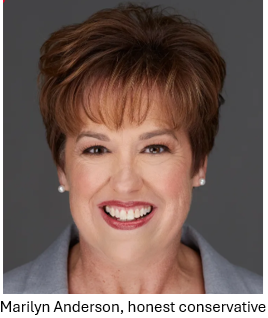



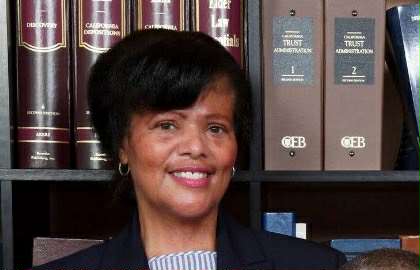




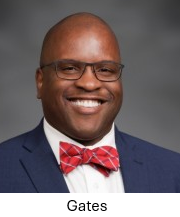




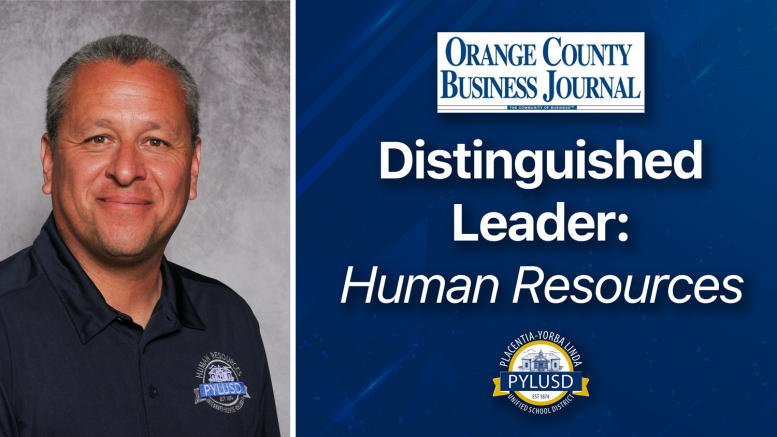
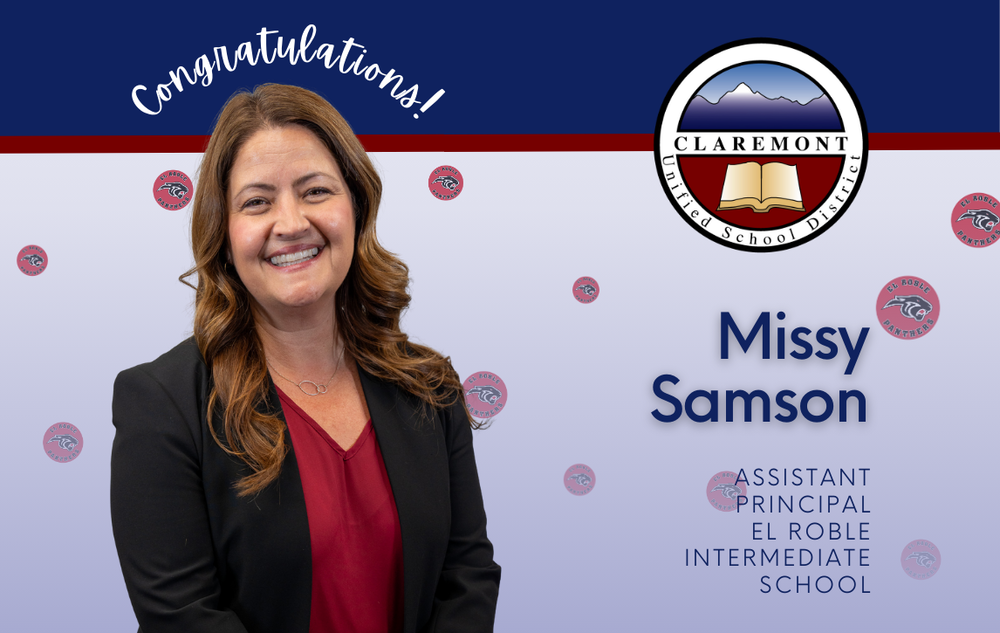

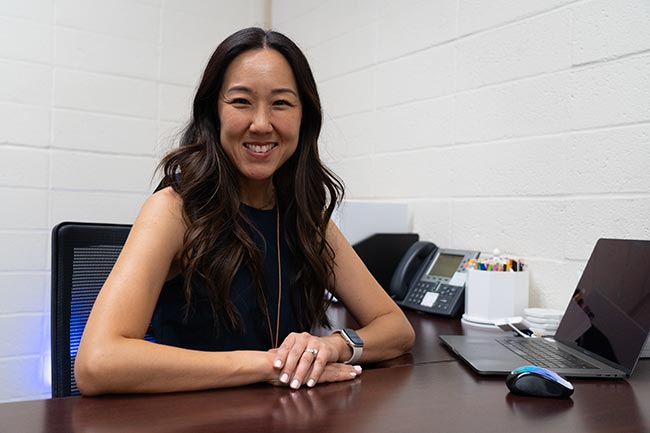
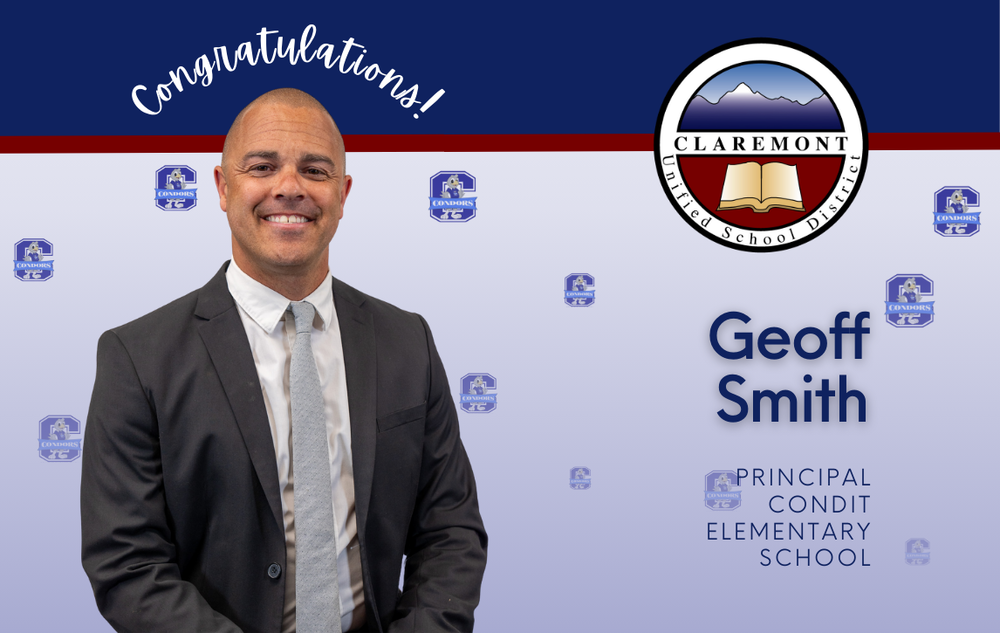




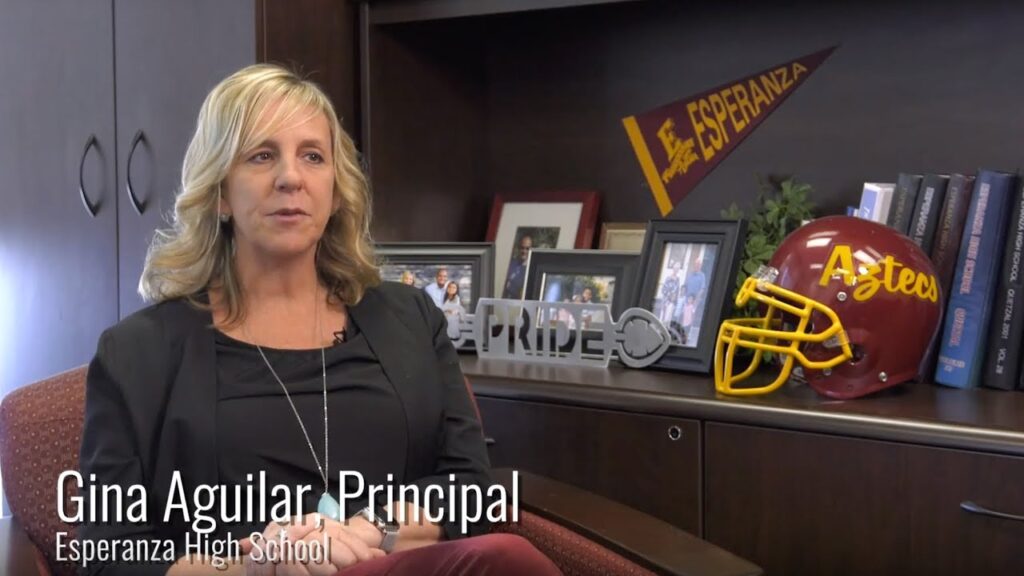




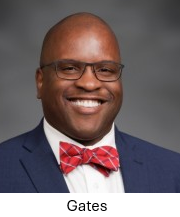





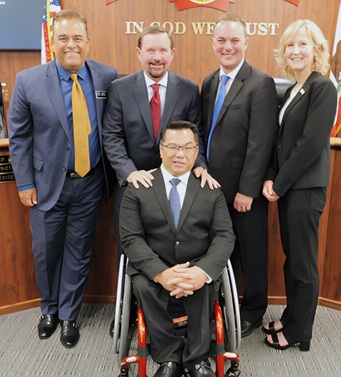


https://beverlypress.com/2025/08/bhusd-considers-proposal-to-back-israel-fight-antisemitism/
Cherniss plans to require Israeli flag flown to commemorate October 7
That’s setting a precedent he might come to regret. Mexican Independence Day is September 16, so there’s still time to agitate for raising its flag!
Cherniss also involved in character attacks in Beverly Hills.
https://beverlypress.com/2025/07/union-sends-bhpd-chief-cease-and-desist-letter/
It was disturbing at last Tuesday’s board meeting (9/9/25) when it became evident that Jocelyn Brodowski knew that one of the closed session items pertained to Dr. Gates’ continued status on paid administrative leave. Was there any indication in the posted agenda that would indicate to the public that Gates’ continuing status was on the agenda? How would she have known that unless someone told her it was going to be?
Even more disturbing is the fact that Ms. Brodowski appears to have been given access to information from a confidential email sent from Attorney Robbins to the board. If this letter was not confidential, then it should be made available to the public so that everyone can see the letter in its entirety. If this letter was confidential, then its leak to members of the community needs to be investigated and the person who violated confidentiality needs to be held accountable.
The authors of the pyl4choice post also indicate that they know the specific details of “the allegation that triggered Dr. Gates’ leave. . . “. Again, this information would almost certainly be closed session material and its revelation in this post would also seem to violate confidentiality laws.
The Scott lawsuit does not claim that Gates terminated her for being concerned about the misallocation of CTE grant funds. What is clear from the Scott suit is that her contractual rights were violated and her concerns were mishandled by several individuals in the district office, including Dr. Gates. The details of the Scott case implicate Gates, but he is not yet name him as a defendant. If Scott’s allegations hold up in court, Gates can be held accountable for these abuses. In other words, we would need to see the entire text of Attorney Robbins’ letter to understand the points he is making in his effort to protect the interests of the district. Again, if this is a public letter, now would be a great time to release it!
Gates is also implicated in the settled case of Richard McAlindin and the pending case of Thomas Craik. In both cases, the plaintiffs are willing to testify under oath that the district and its Human Resources official violated their contractual and legal rights as employees.
The board majority probably would have dismissed Gates for cause if Trustees Blades, Frazier, and Youngblood had not required an unprecedented supermajority vote to do so. It was unprecedented in that a simple majority passed a requirement for a supermajority. Previous contract requiring a supermajority passed with unanimous votes. The supermajority requirement for dismissing Gates, Cherniss, Yaung, and Gray was an obvious effort of the outgoing majority to undermine the will of the voters in the PYLUSD. It is that November 19 vote that is wasting taxpayer money.
An update on this story. Tom Craik died suddenly on December 8, two years to the day after the PYLUSD told him that it no longer valued his services and began the attacks on his character. At the memorial, Mrs. Craik did not hide her scorn for the way her late husband had been treated. Further updates on his case will be posted here, but it is unlikely that it can go forward without his presence in court.